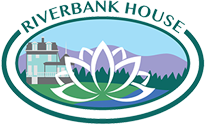Overcoming a drug or alcohol addiction requires structure, support, and education. Those who have tried to overcome an addiction in the past know that without any one of these factors, recovery is nearly impossible.
The Riverbank House offers men seeking to recover from substance abuse or dependence the chance to recover in a structured, supportive environment in which they can learn how best to overcome their destructive behavior and implement positive spiritual and physical changes into their lives. The Riverbank House’s alcohol and substance abuse program is aimed at giving patients the mental tools they need to beat their addictions once and for all.
Challenges with Drug & Alcohol Addiction Recovery
Substance abuse issues are rarely the only problem in an addict’s life. Psychologists suggest that, most often, substance abuse problems are the symptom of a much more deeply-rooted problem such as mental illness, psychological trauma, and other problems. In order to overcome any type of addiction, addicts must first address what is causing them to turn to drugs or alcohol in the first place, which can be very difficult for most patients.
Other challenges with alcohol and drug recovery stem from a lack of structure or support during the actual recovery process. Addicts are known to lie, manipulate, and even break the law in order to satisfy their addictions; and without structure their behavior can get out of hand. Without a support system to encourage the patient during hard times and hold them accountable for their behavior, the likelihood of recovery is slim to none.

What Makes Riverbank House Effective?
The principles of recovery are nothing without a lifelong commitment and dedication to sobriety. Riverbank House Extended Care Recovery Community recovery methods are founded on the Twelve Steps of Alcoholics Anonymous, proven to help addicts address each aspect of their dependence and make a thorough recovery. We also stress living according to the Twelve Principles of Buddhism to create harmony and fuel the positive changes they are making in their lives. We encourage daily yoga practice and meditations, a strictly enforced code of non-aggression, collaboration, accountability, self-reflection, mutual respect, and the pursuit of common passion.
Amenities
The Riverbank House is designed to provide patients with a relaxing atmosphere in which they can remove themselves from distractions and focus their energies on productive activities. Our amenities allow patients to pursue their passions; acquire new skills; and improve mind, body, and spirit.
Amenities include:
- 2 fully equipped yoga studios and private indoor meditation rooms
- 4 comfortable living rooms with plasma screen TVs
- 15 bedrooms
- Private study and music room
- Fitness equipment
- Private visitation rooms
- WiFi
- 5 fully equipped kitchens
…and much more.
Addiction Recovery Program Phases
· Phase I: Foundation
Phase I is centered on orientation into the program and getting each patient off on the right foot. Patients participate in goal setting sessions to create realistic benchmarks for their treatment, attend group sessions to learn how to show and receive support, and are introduced to Alcoholics Anonymous Steps 1-3. Phase I also involves a good deal of self-reflection and writing, daily meditation, and yoga in order to keep thoughts and actions in harmony with a healthy lifestyle.
· Phase II: Implementation
Phase II of the program involves participation in Foundation Phase activities as well as Solo No More activities. Patients will also begin career planning and have the opportunity to participate in education classes, financial planning, and life management classes. Most importantly, they begin full immersion into AA steps 4-8 with sponsor assistance.
· Phase III: Vigilance
Phase III allows patients to work extensively with a recovery coach to examine and strengthen their self-action. Riverbank House’s staff will work with patients to help them set short-term and long-term goals to monitor their progress post-recovery. Patients also begin work on AA steps 9-12 .
· Phase IV: Transitional Living
Phase IV is crucial for patients to begin acclimating themselves to life outside of the rehabilitation center. Patients are relocated to an independent living in local recovery supportive housing where they continue to implement the 12 steps and attend weekly meetings with their own recovery coach.
Contact Us
The Riverbank House is dedicated to helping men of all backgrounds receive the help they need to begin their lives again on the right foot. If you have specific questions about our programs, amenities, insurance, or our success rate, feel free to contact us via phone or email.
Phone: (603) 759-2895
Email: r@riverbankhouse.net
Riverbank House
 96 Church Street Laconia, NH 03246 Phone: (603) 759-2895 Email: r@riverbankhouse.net
96 Church Street Laconia, NH 03246 Phone: (603) 759-2895 Email: r@riverbankhouse.netHelpful Resources
- Drugs, Brains, and Behavior: The Science of Drug Addiction July 22, 2014
- Understanding Drug Addiction July 21, 2014
- Approaches to Drug Addiction Treatment July 20, 2014
- New Hampshire Drug Rehab & Alcohol Treatment July 19, 2014
